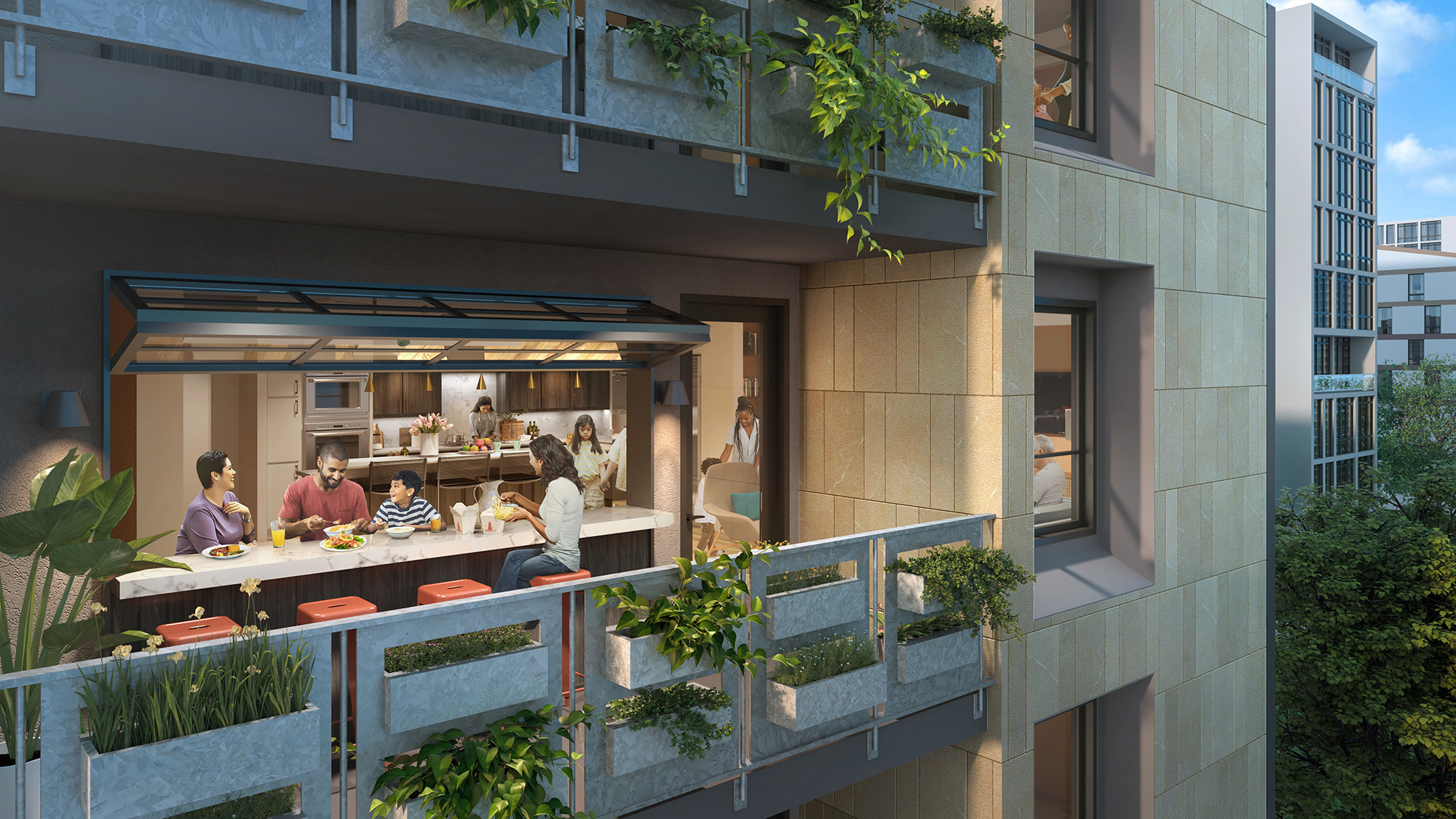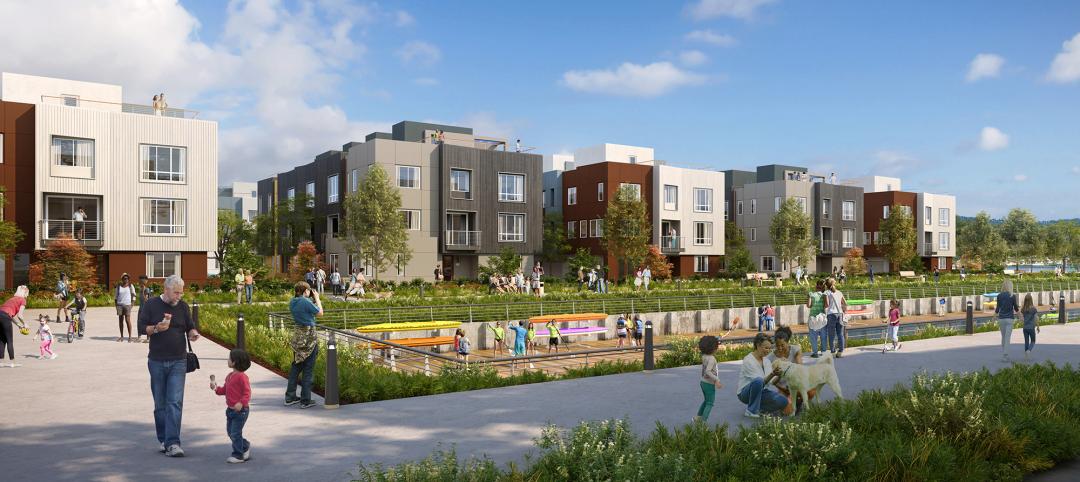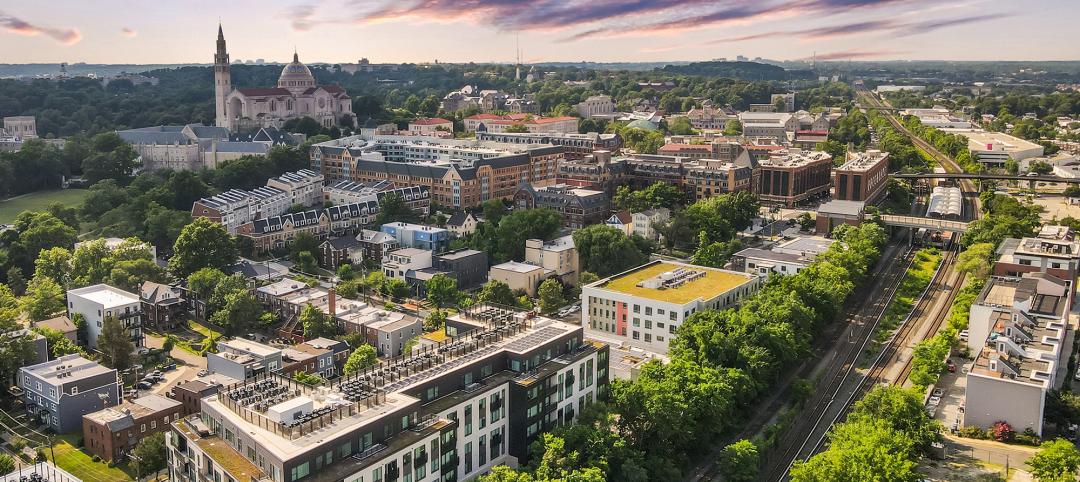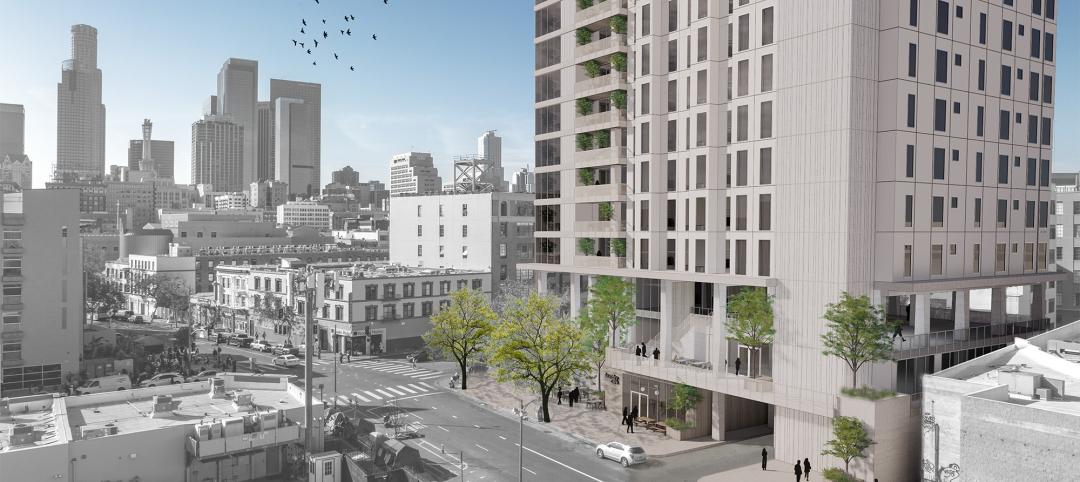According to the Pew Research Center, the number of American adults aged 25 to 34 living in multigenerational homes has steadily increased from 9% in 1971 to 25% in 2021. As of March 2021, 18% of Americans are in multigenerational housing, totaling 59.7 million individuals. Among young adults, men are more likely to live in multigenerational households. However, within the older adult age bracket, women are more likely to opt for a multigenerational lifestyle.
With rising rents and soaring student loan debt, many young adults who have graduated from college are struggling to afford living independently. By choosing to live with parents or grandparents, young adults increase their capacity to build savings, tackle debt, and pursue further education that will accelerate their future earning potential. Likewise, older Americans may find themselves with insufficient retirement funds and, as a result, need to look for ways to reduce their living expenses. Recent inflation and the high cost of medical care place undue financial pressure on retirement savings, further motivating older Americans to cohabitate with extended family members.
While financial challenges are the leading cause driving the formation of multigenerational households, caregiving needs and lifestyle satisfaction also significantly contribute to the practical reasons Americans choose multigenerational lifestyles. A growing population within the Hispanic-American and Asian-American communities aligns with a cultural preference to live in a multigenerational household. As a familiar lifestyle choice, echoing previous generations, an increasing number of Americans find multigenerational living a comfortable and preferable solution for them and their families. The majority of Americans living in a multigenerational household consider their living situation generally convenient. And, while less than a quarter find the experience stressful all or most of the time, more than half of multigenerational residents feel their living experience is mostly rewarding.
With jurisdictions nationwide enacting new regulations to expand the opportunities for homeowners to build accessible dwelling units on their land, multigenerational living has become increasingly prolific within single-family zoning. However, multifamily and mixed-use design has failed to mirror this desired living arrangement in new development. Often confined to three bedrooms or less, multifamily housing design ranges from compact and affordable to large and luxurious, but rarely addresses the wide range of household compositions that make up the American population.
Multigenerational, multifamily housing design
Family Flat focuses on providing an attainable solution for multigenerational housing that supports connections between generations and strengthens cultural ties, all while considering caregiving needs and the flexibility to adapt to the changing needs of families.
Attainability Through Shared Expenses
Financial considerations are the leading drivers for American adults living in multigenerational households. With rapidly rising housing costs, families are looking for opportunities to share expenses and reduce their overall budget. Family Flat houses six to 10 family members in 2,540 sf, or approximately 254 to 423 sf per person, which is less area per person than a typical studio or one-bedroom unit.
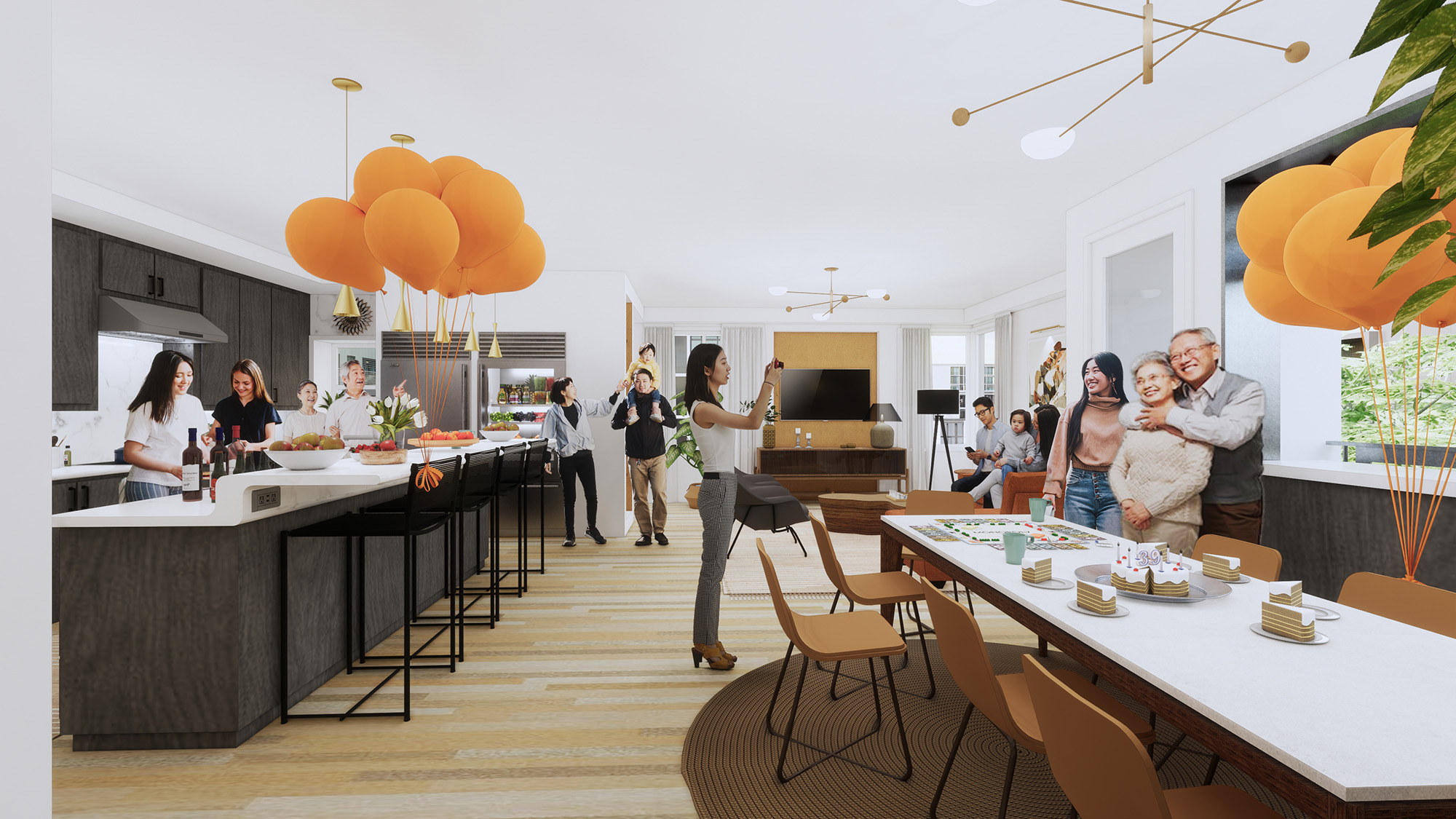
Imparting Cultural Heritage
Most commonly, culture is passed from one generation to the next through daily interactions in one’s home. Through multigenerational living, communication and imitation of cultural heritage are woven into language, rituals, art and behaviors. The Family Flat concept provides a large, shared living, dining and kitchen area where families can share meals and celebrations and discuss personal priorities and values.
Adapting to Growing Families
The unique needs of each family call for adaptable spaces that can support a wide range of activities. As a family grows and evolves, spaces within their home may need to evolve with them. By incorporating a flex space that can function as a home fitness area, a kids’ playroom, or a work-from-home space, Family Flat addresses the need for adaptable spaces within multigenerational living.
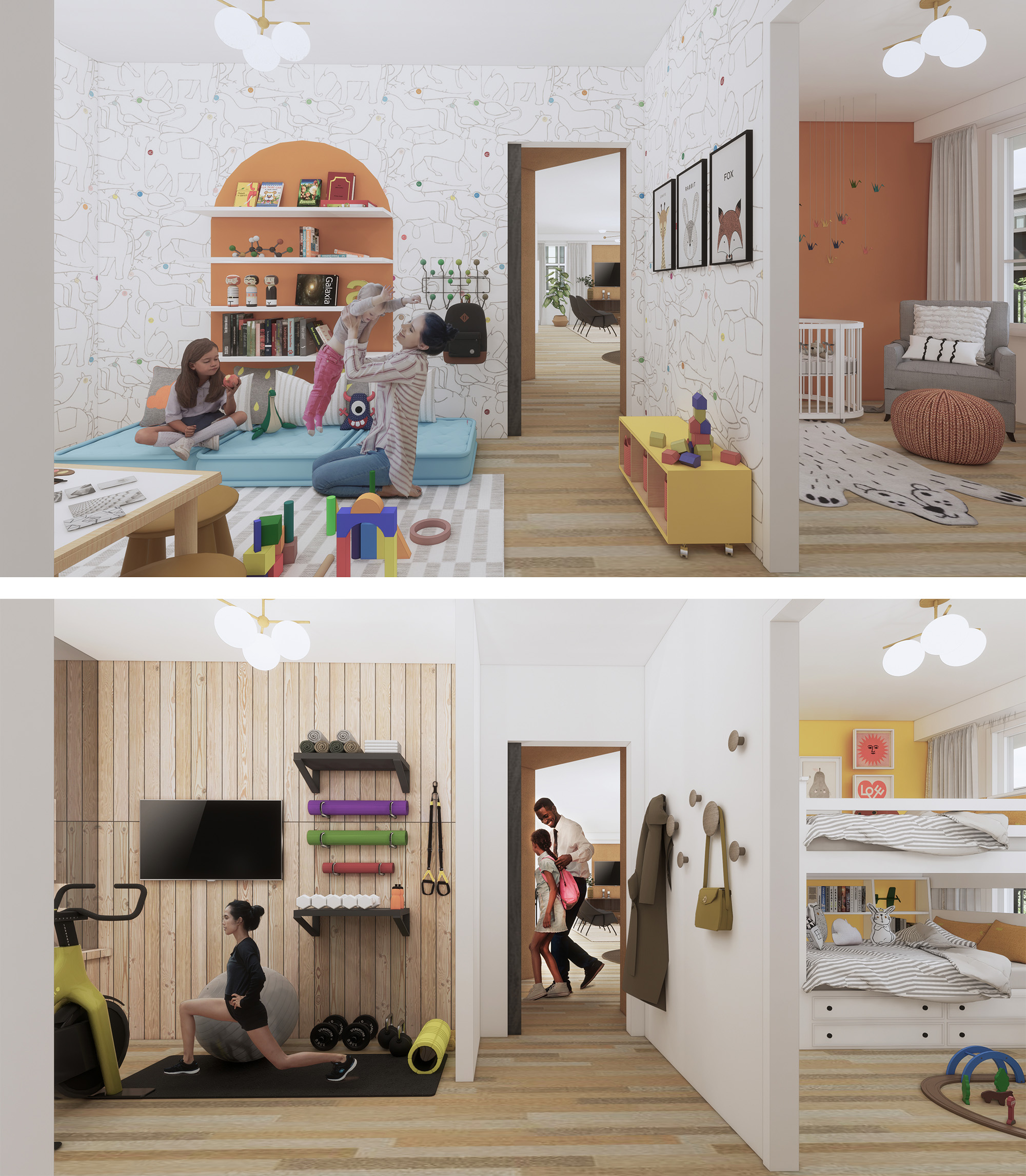
Strengthening Familial Connections
Balancing the need for private space with some shared common areas, the Family Flat concept design allows families to live in proximity while providing a degree of separation. A 2021 report by Generations United found that strong family bonds have a positive impact on both physical and mental health.
Supporting Caregiving Needs
With rising costs for childcare and an aging baby boomer generation, caregiving needs can significantly impact family finances. According to a LendingTree report, the average annual cost for center-based childcare increased 41% from early 2020 to early 2022. Multigenerational living allows extended family to work cooperatively to provide all or some of the necessary caregiving, reducing expenditures while also building lifelong connections.
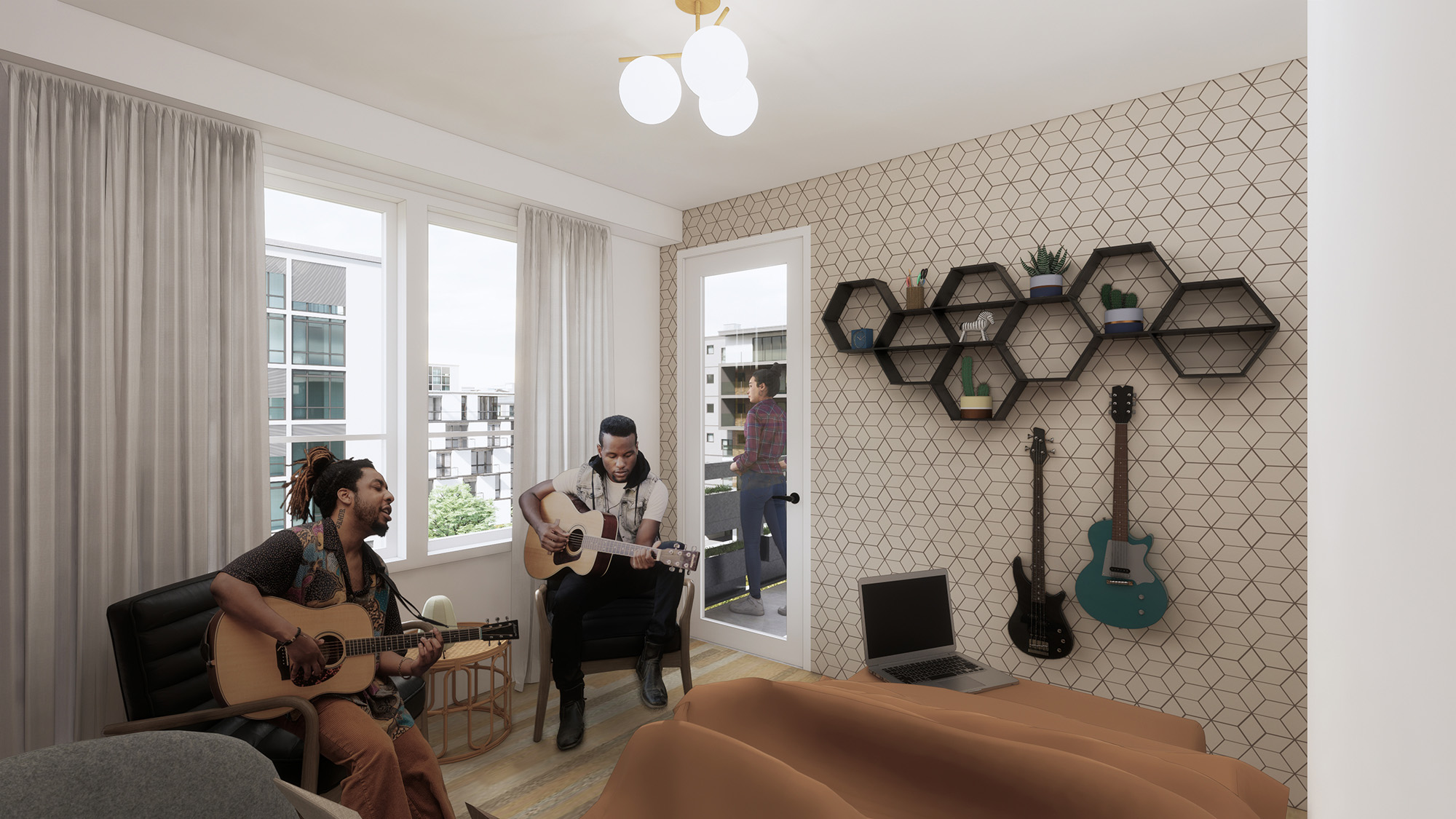
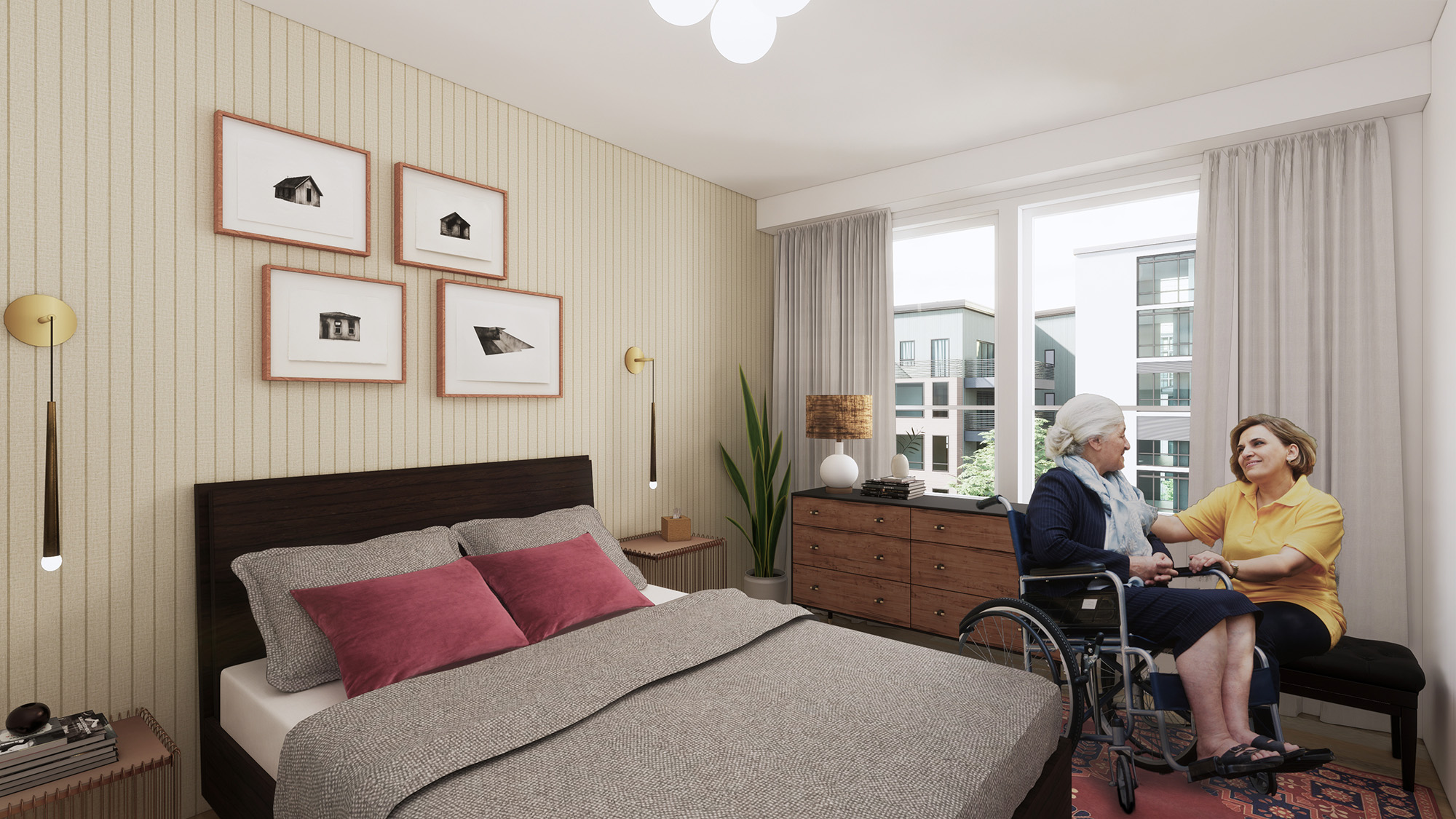
More from Author
KTGY | May 15, 2024
Modular adaptive reuse of parking structure grants future flexibility
The shift away from excessive parking requirements aligns with a broader movement, encouraging development of more sustainable and affordable housing.
KTGY | Apr 13, 2024
Former industrial marina gets adaptive reuse treatment
At its core, adaptive reuse is an active reimagining of the built environment in ways that serve the communities who use it. Successful adaptive reuse uncovers the latent potential in a place and uses it to meet people’s present needs.
KTGY | Apr 8, 2024
3 sustainable design decisions to make early
In her experience as an architect, Megan Valentine AIA, LEED AP, NCARB, WELL AP, Fitwel, Director of Sustainability, KTGY has found three impactful sustainable design decisions: site selection, massing and orientation, and proper window-to-wall ratios.
KTGY | Jul 27, 2023
Repeatable, supportive housing for the unhoused
KTGY’s R+D concept, The Essential, rethinks supportive housing to support the individual and community with a standardized and easily repeatable design.

